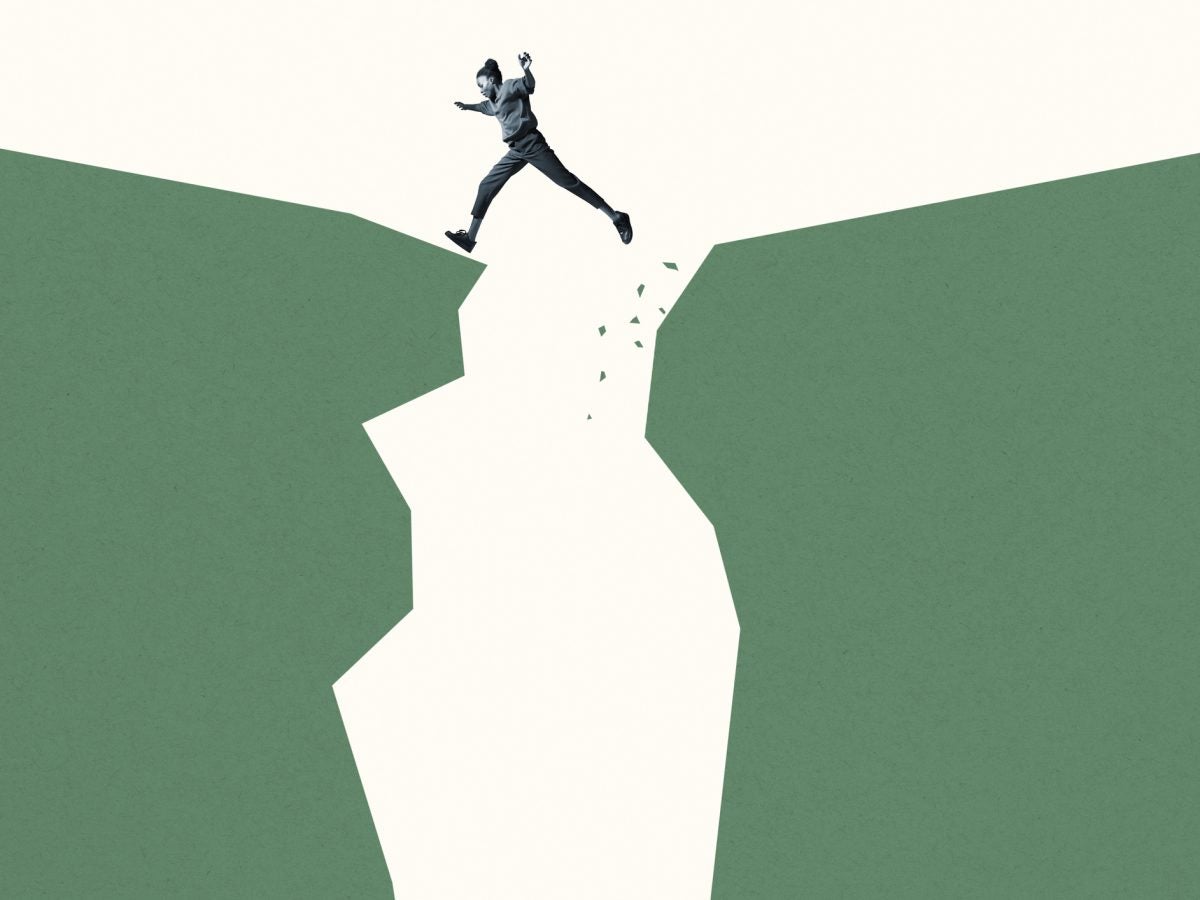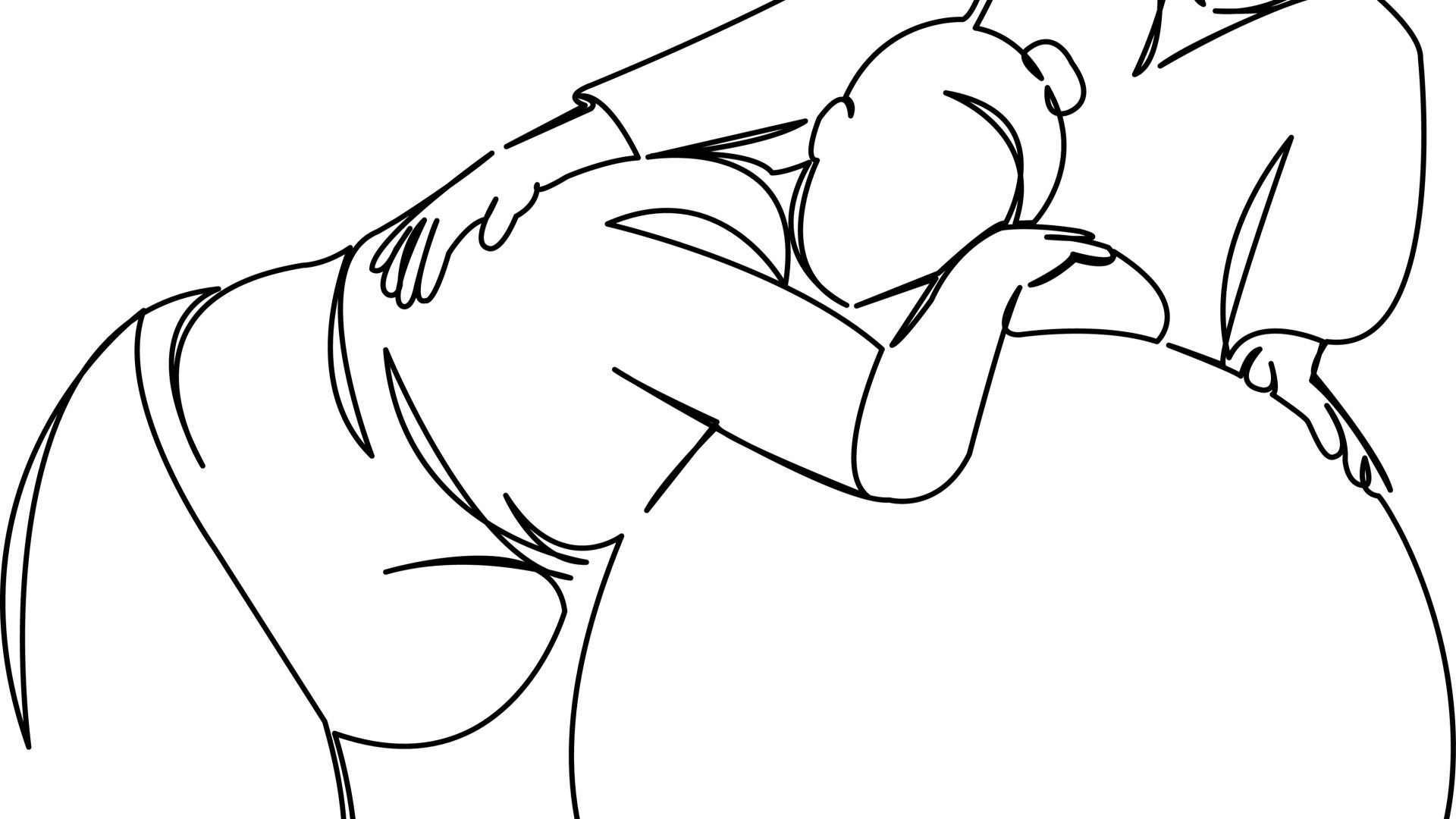
September is Self-Care Awareness Month. To observe it, every week we’re speaking with experts in mental health and wellness to offer actionable ways to practice self-care that prioritize emotional wellbeing.
Never underestimate the impact of unaddressed trauma.
If you’ve been in unhealthy, even violent relationships in the past, it can negatively impact your ability to be able to see the good in a romantic interest in the present. It can even send you into the arms of the same type of toxic partners. Financial trauma experienced growing up can lead to an intense scarcity mindset in the present and affect the way you see and handle money. And research has shown that different forms of past trauma can cause emotional and physical reactions that can have long-term effects, like increasing the possibility of obesity, diabetes, cancer, heart attack and stroke.
So if we’re going to talk about self-care, as we have done all month, we have to discuss one of the biggest barriers to joyfully practicing it, which is unresolved trauma. To help with that, we’ve sought out the insights of licensed trauma therapist Fanike-Kiara Olugbala Young, DBH, LCSW, author of What the F*ck Is Your Problem?! Becoming an Active Worker in Healing Your Trauma. Not only is she an expert on the topic through her education, but also through her experiences, as she is a survivor of childhood and financial trauma. This is what she says about the different forms of trauma, how we often avoid it, and how dealing with it is the ultimate act of self-care.
ESSENCE: What would you classify as trauma? Is it only truly deeply disturbing events or can it be anything that stays with us?
Fanike-Kiara Olugbala Young: Trauma is any event that causes us to negatively alter our perspective of others, experiences, or ourselves. It doesn’t have to be a death, loss, or anything tragic. It doesn’t have to be something we consider monumental. It can be something someone says to us, something we witness, or just something that makes an impact. Two people can experience a minor car accident, impacting them entirely differently. One person may be able to leave and never think about the accident again, while the other could find it challenging to drive moving forward. This is why we should not compare traumas, and I believe that is why so many of us suppress our traumas. We can be so busy focusing on someone else’s experience that we minimize our own because it doesn’t appear to be as important. The truth is that we all have our personal journeys that we must own and pay attention to.
In what ways do we avoid facing our trauma, and why is it essential to confront it?
Avoidance of facing our traumas can look different in so many ways. We can throw ourselves into our work and responsibilities to avoid what is going on internally. I remember being in a space where busy was my solution because I just wasn’t ready to deal with my traumas. I was working, going to school, in a relationship, and starting my business. I was so exhausted mentally and physically that there was no time to focus on me, and it was on purpose. Others may focus on other people’s problems, so they do not have to focus on themselves. In my work, I have found that most helping professionals who come to me for coaching have a long history of neglecting their mental and emotional health. They are in marriages they do not want to be in, working jobs they hate, financially unsatisfied, and just unhappy. This also applies to others that take on the duty of taking care of others. It requires a level of self-sacrifice and martyrship. But it distracts from doing the work necessary to reflect and heal. As long as people avoid their traumas, they cannot reach a place in their lives of complete acceptance of who they are, nor can they reach their highest level of fulfillment. Life is not always pleasant, pretty, or easily digestible. Those moments contribute to who we are as well, so they cannot just be discarded because they were difficult. There are life lessons and realizations that come with facing our traumas.
How can we begin to recover from them? And what are daily efforts we can make to find peace?
Trauma can impact us on so many levels. It can stop us in our tracks, rendering us helpless. There are several dimensions of health, including our physical, mental, social, financial, spiritual, environmental, and vocational well-being. These dimensions are interdependent and impact one another, which is why we can experience a traumatic event, and all of these pieces become negatively affected by that one event. Because of this, it is important for us to pay close attention to how we feel in all of these areas, and when healing, care must happen for each of them simultaneously. I designed my coaching program in that manner because when I was going through my own healing journey and attempted to fragment the care, it wasn’t effective. I know most people separate their healing process, but to be successful, it is important to take steps towards doing something in each area regularly.







Some daily efforts to deal with traumas include:
- Beginning each day with mindfulness work such as affirmations, journaling, breathwork, or meditation. This helps you to be present, and lets you know you are making the conscious decision to focus on your healing. It is also a great way to face limiting beliefs and negative thoughts head-on instead of just waiting for them to appear.
- Practice understanding and patience with your journey. Healing is a journey and not a sprint. This means creating rituals for yourself that may include exercising each day, listening to an encouraging playlist, reading an inspiring book, writing, coloring, or even twerking. Moving your body is critical in moving the stagnant energy created from trauma. So get moving and have fun while doing it!
- Have grace with yourself. Some days you may want to cry, stay in bed and just watch television. That can be what you need now, and nothing is wrong with that. Avoid judging yourself. The healing journey is not a pretty one, but it is a choice, and that choice has to be made every day. Trauma has layers, so even when you think you have dealt with some aspect, it may pop back up later on, or a higher form may appear. By working on one part, another can be exposed, which requires you to work further. Practice compassion with yourself.
- Create and use a support system. Your support system may consist of family and friends but should also include professionals trained in healing others. My support system consisted of my boxing trainer, acupuncturist, therapist, business coach, and medical doctor at one point. All of them provided me with something different and helped me to address my multidimensional needs at the time. Use the people around you and connect with those that you require to move forward.
How is healing from trauma the ultimate act of self-care?
Trauma can be heavy and detrimental to our dreams, goals, and life purpose. It has the ability to change us and keep us from showing up as our authentic selves. Trauma can stop us from making the impact on the world that we are meant to make. Self-care is meant to help us perform at our best and support our overall well-being. Trauma can make us believe we do not deserve to live our best lives. It can trick us into thinking we should play small and shrink to make others comfortable or lead us to fear the repercussions of showing the world how powerful and gifted we really are. By choosing to heal our traumas, we choose to care for our entire selves and push through limitations to fulfill our most genuine potential.








